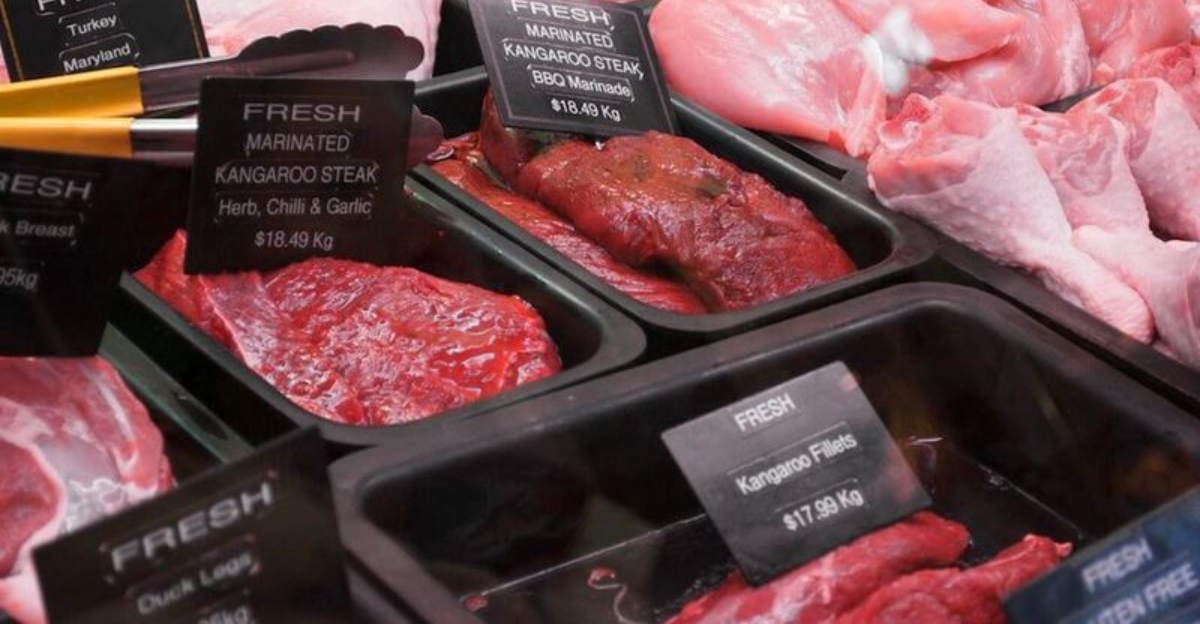From Alaska To Florida: 13 Meats That Are Now Illegal In The U.S.

America loves its freedom, especially when it comes to food. But even in the land of the free, there are some meats you absolutely cannot eat, no matter how adventurous your palate might be.
From coast to coast, federal and state laws have drawn a hard line against certain proteins that might surprise you.
1. Whale Meat
This oceanic giant’s flesh has been off the American menu since the Marine Mammal Protection Act dropped in 1972. Whale meat was once considered a delicacy in coastal communities, particularly among indigenous populations who relied on these creatures for survival.
Today, hunting or consuming whale in U.S. waters can land you serious federal charges. The ban protects multiple whale species from extinction.
Some countries still serve it, but here? Not a chance. Your taste buds will have to find adventure elsewhere, friend.
2. Shark Fin
Where cruelty meets cuisine, you’ll find this controversial item that’s now banned in multiple states. Shark fin soup was once a status symbol in certain culinary circles, particularly at fancy banquets and celebrations.
The practice involves cutting off fins and tossing the shark back into the ocean to die. Brutal, right? States like California, Hawaii, and New York have said absolutely not.
Federal restrictions also limit shark finning in U.S. waters. Conservation efforts continue to expand these bans nationwide.
3. Horse Meat
Though technically not illegal to eat, finding horse meat in America is nearly impossible thanks to slaughter bans. These majestic animals hold a special place in American culture as companions, not cuisine.
Congress has repeatedly defunded horse slaughter inspections, effectively shutting down the industry. Without USDA inspection, no facility can legally process horses for human consumption.
Some states have their own explicit bans, too. Your childhood pony dreams remain safe from the dinner plate, thank goodness.
4. Dog Meat
Are you kidding me? This one should be obvious, but it wasn’t federally illegal until 2018. The Dog and Cat Meat Trade Prohibition Act finally made it a crime nationwide to slaughter or sell dogs for human consumption.
Before that, only certain states had their own laws against it. Cultural attitudes in America view dogs as family members, not food sources.
Violators face hefty fines for each offense. Your furry best friend can rest easy knowing federal law has their back.
5. Fugu (Pufferfish)
Did you know this Japanese delicacy contains enough toxin to poison thirty people? Fugu preparation requires intense training because one wrong cut releases tetrodotoxin, a poison with no known antidote.
The FDA heavily restricts fugu importation, and only licensed chefs can prepare it in approved restaurants. Most states essentially ban it through strict regulations.
Eating Russian roulette on a plate doesn’t sound appealing anyway. Your dinner shouldn’t come with a mortality risk, no matter how adventurous you feel.
6. Chimpanzee Meat
However distant cousins we might be, eating our primate relatives is absolutely forbidden in America. Chimpanzee meat, often called bushmeat, carries serious disease risks including Ebola and other zoonotic infections.
Federal endangered species laws protect chimps from hunting, trade, and consumption. These intelligent creatures share roughly 98% of our DNA, making the whole concept deeply unsettling.
Importing bushmeat is a federal crime with serious penalties. Keep your protein sources far removed from the primate family tree, please.
7. Cat Meat
These furry couch potatoes earned federal protection alongside dogs in 2018, thank goodness. The same law that banned dog meat also made it illegal to slaughter, trade, or consume cats anywhere in the United States.
Before federal action, several states already had their own prohibitions. Americans overwhelmingly view cats as beloved pets deserving protection, not potential meals.
Violating this law means facing significant fines per violation. Your kitty can continue judging you from the windowsill without fear of becoming dinner.
8. Bald Eagle Meat
When your national symbol is on the menu, you know something’s gone terribly wrong. Bald eagles receive protection under multiple federal laws, including the Bald and Golden Eagle Protection Act.
Possessing or consuming these magnificent birds can result in criminal charges and hefty fines. They nearly went extinct before conservation efforts brought them back.
Even possessing a single feather without proper permits is illegal. America takes its symbol seriously, so keep your patriotic admiration strictly visual, folks.
9. Elephant Meat
Though you’d need an industrial-sized grill, cooking up elephant is completely off-limits in America. These intelligent giants are protected under the Endangered Species Act, making their importation, sale, or consumption strictly prohibited.
Elephants face serious poaching threats worldwide for ivory and bushmeat. U.S. laws aim to reduce demand for elephant products of any kind.
Violating these protections brings severe federal penalties. Your backyard barbecue will have to stick with conventional proteins, no matter how exotic your cravings.
10. Monkey Meat
Are we really still talking about eating primates? Apparently, we need to, because monkey meat falls under strict federal bushmeat import bans. These regulations protect both animal populations and public health.
Monkey meat can transmit dangerous diseases to humans, including various hemorrhagic fevers. Most monkey species enjoy protected status under wildlife conservation laws.
Customs agents actively screen for illegal bushmeat at ports of entry. Keep your evolutionary relatives off your plate and stick to farm-raised options instead.
11. Kangaroo Meat
Hence the Golden State said no to these hopping Australians back in the 1970s. California banned kangaroo products, including meat, due to concerns about population sustainability and animal welfare.
The ban remains in effect despite Australia’s claims that kangaroo harvesting is sustainable. Other states allow kangaroo meat sales, creating a patchwork of regulations.
If you’re in California, your lean protein options don’t include marsupials. Travel elsewhere if you’re desperately curious about this particular exotic meat experience.
12. Gorilla Meat
However shocking it sounds, gorilla bushmeat remains a problem in some regions, but not here. All gorilla species are critically endangered and receive maximum protection under U.S. and international law.
Federal regulations strictly prohibit importing, trading, or consuming gorilla meat. These magnificent primates share deep genetic connections with humans and face extinction threats.
Enforcement agencies take violations extremely seriously with criminal prosecution. Your conscience and the law both agree: gorillas belong in forests, not freezers or on anyone’s plate.
13. Turtle Meat (In Certain States)
When it comes to shelled reptiles, state laws create a complicated patchwork of what’s legal and what’s not. Sea turtles enjoy federal protection under the Endangered Species Act, making their consumption illegal nationwide.
Some states also ban freshwater turtle harvesting during breeding seasons or for certain species. Louisiana and other Southern states have specific regulations about turtle meat sales.
Check your local laws carefully before considering turtle soup. What’s traditional cuisine in one state might land you in legal trouble across the border.






